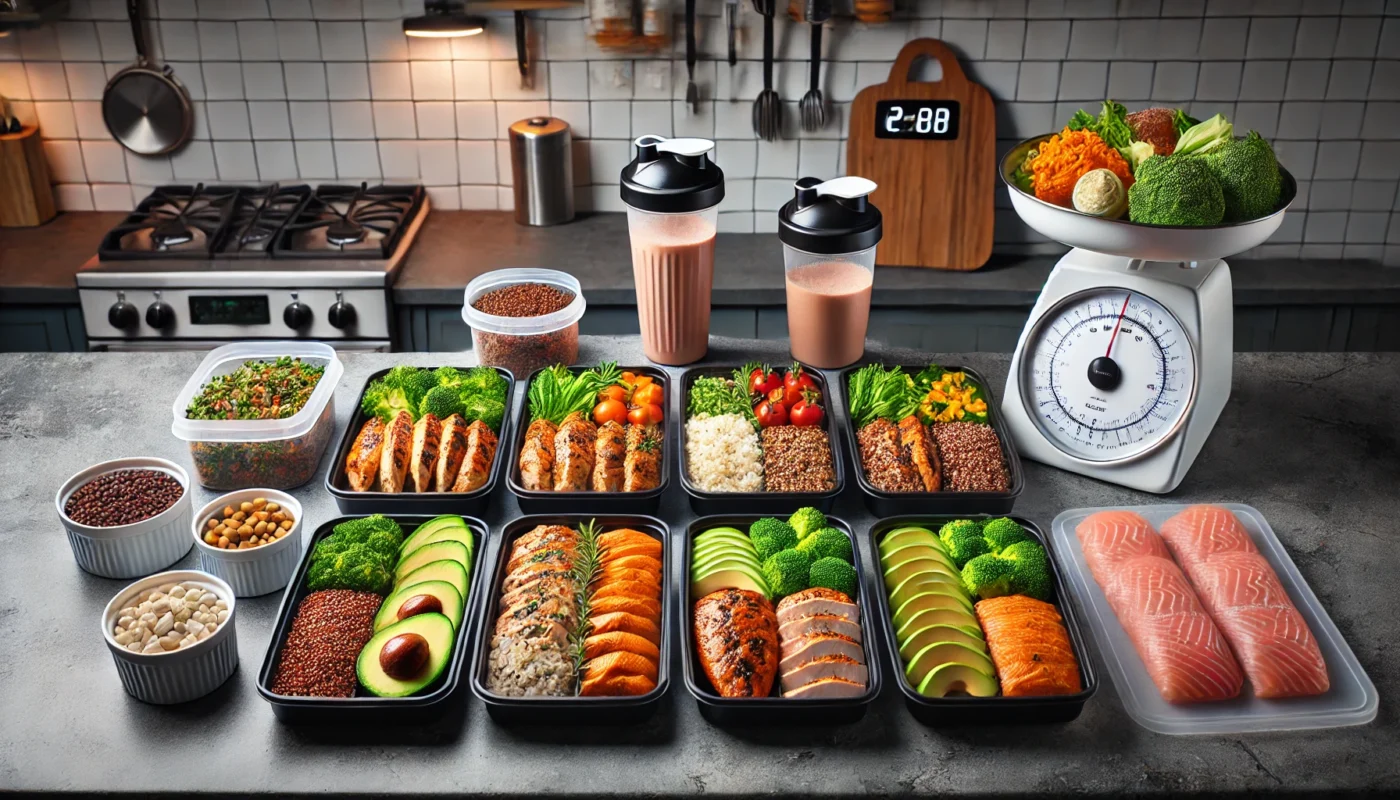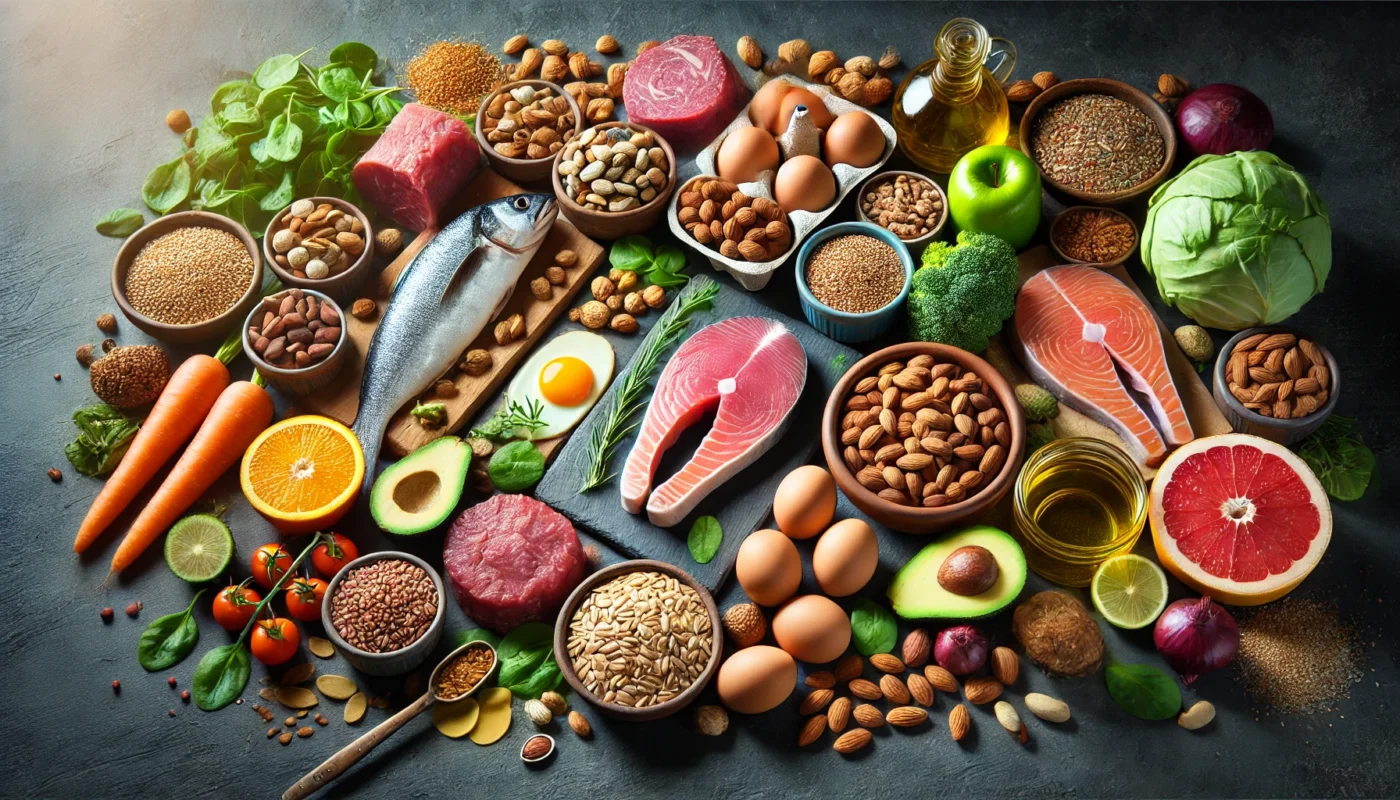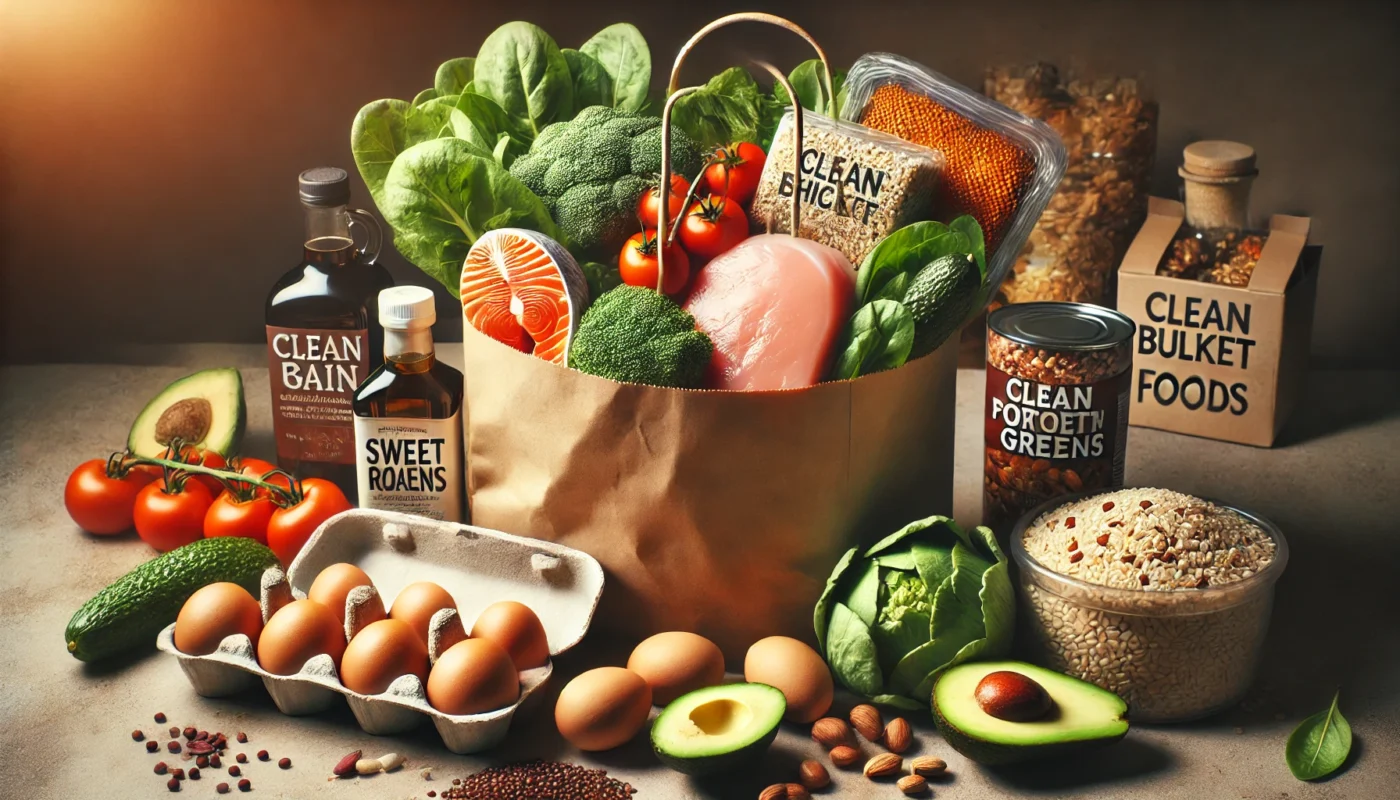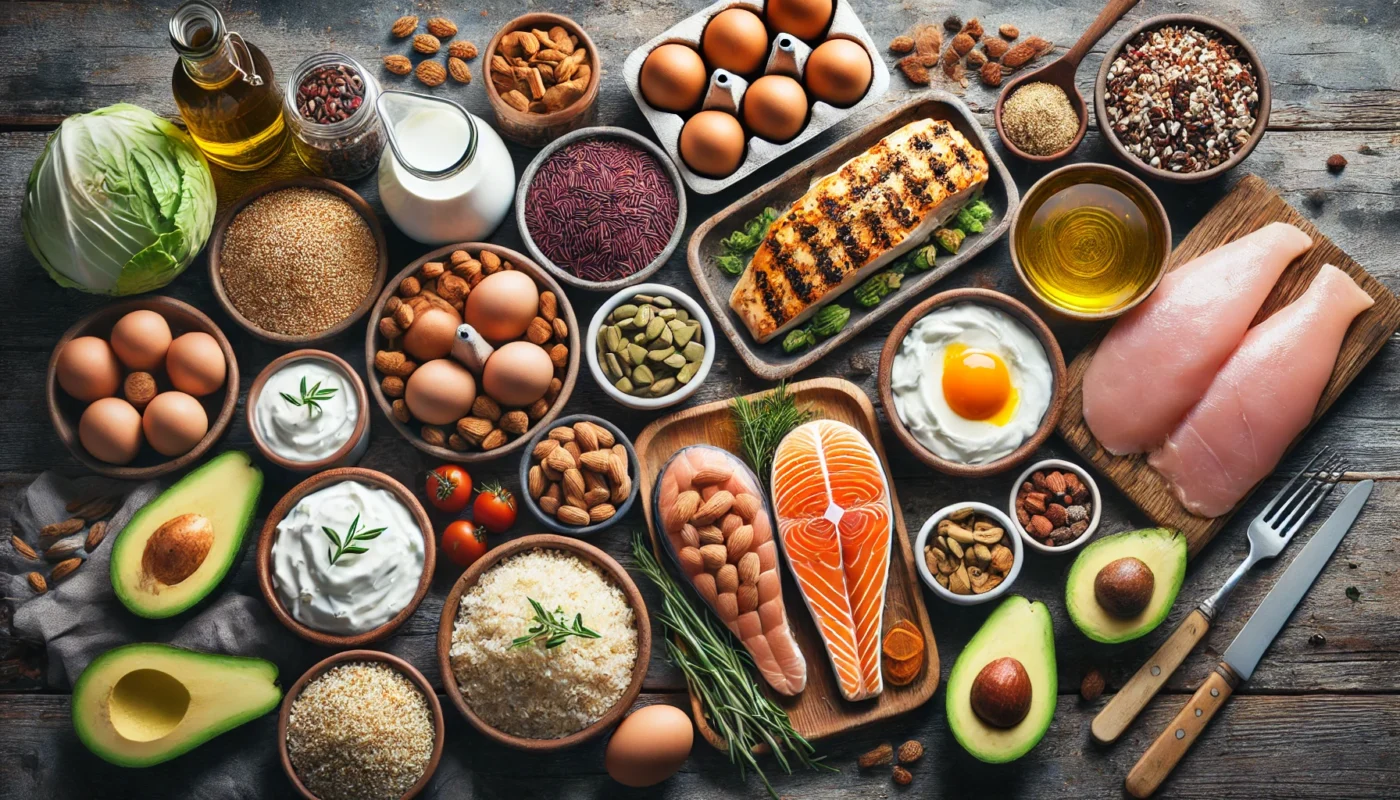Bulking up, when done right, involves more than just consuming as many calories as possible. Instead, clean bulking is about selecting nutrient-rich foods that will support muscle growth while minimizing fat gain. Navigating the myriad of dietary options can be daunting, especially when trying to maintain a clean bulk. This article will delve into the top ten clean bulking foods that can help you achieve your fitness goals effectively.
You may also like: High Protein Foods to Fuel Workouts

Understanding Clean Bulking
Before diving into the specifics of what to eat, it’s crucial to understand the concept of clean bulking. Clean bulking is a strategic approach to gaining muscle mass by consuming nutrient-dense foods rather than indulging in empty-calorie foods. The goal is to increase muscle size while keeping fat gain at a minimum, ensuring that your gains are lean and sustainable.
The Basics of Clean Bulking
Clean bulking involves eating a surplus of calories, but from high-quality sources. This means focusing on whole foods that provide a balanced array of macronutrients and micronutrients. Unlike dirty bulking, which might prioritize calorie intake above all else, clean bulking focuses on the quality of calories.
Nutrient Density vs. Empty Calories
One of the cornerstones of clean bulking is choosing foods that are nutrient-dense rather than calorie-dense. Nutrient-dense foods provide vitamins, minerals, and other beneficial compounds without excess calories. This helps to support overall health and wellness while promoting muscle growth.
The Role of Macros and Micros
While macronutrients like proteins, fats, and carbohydrates are crucial for muscle growth, micronutrients are equally important. Vitamins and minerals play a vital role in bodily functions and muscle recovery. A well-planned clean bulking diet ensures a sufficient intake of both macros and micros.
Monitoring Progress and Adjusting
Clean bulking requires regular monitoring of your progress. This involves tracking your calorie intake, macronutrient distribution, and body composition changes. Adjustments may be necessary to ensure continuous muscle growth without excessive fat gain. Tools like food diaries and body measurements can be helpful.
Long-term Health Benefits
In addition to supporting muscle growth, clean bulking offers long-term health benefits. By focusing on nutritious foods, you reduce the risk of chronic diseases like obesity, diabetes, and cardiovascular problems. This approach promotes a healthier lifestyle overall, which is sustainable even after reaching your bulking goals.
Why Opt for Clean Bulking?
Clean bulking is beneficial for long-term health and wellness. It focuses on maintaining a balanced intake of macronutrients—proteins, fats, and carbohydrates—while also ensuring adequate micronutrient consumption. This method reduces the risk of developing chronic diseases associated with poor diet choices and excessive weight gain.
Sustained Muscle Growth
Clean bulking supports sustained muscle growth by providing the body with essential nutrients. Protein intake is optimized to aid muscle repair and growth, while healthy fats and carbohydrates provide energy for workouts. This balanced approach ensures that muscle gain is consistent and sustainable over time.
Minimizing Fat Gain
One of the main advantages of clean bulking is the ability to minimize fat gain. By choosing nutrient-rich foods, you avoid the empty calories that contribute to fat accumulation. This focus on quality over quantity helps maintain a lean physique even as you increase muscle mass.
Improved Energy Levels
Eating a clean bulk diet enhances your energy levels throughout the day. Complex carbohydrates and healthy fats provide sustained energy, while proteins support muscle repair and growth. This balanced energy intake fuels workouts and daily activities, improving performance and endurance.
Better Recovery and Reduced Inflammation
Clean bulking emphasizes foods that aid in recovery and reduce inflammation. Omega-3 fatty acids from fish, antioxidants from fruits and vegetables, and proteins from lean meats all contribute to faster recovery times. This allows for more frequent and intense workouts, accelerating muscle growth.
Enhanced Overall Wellbeing
Focusing on a clean bulk diet enhances overall wellbeing. The emphasis on whole foods leads to better digestion, improved mental clarity, and a stronger immune system. This holistic approach supports not only physical health but also mental and emotional wellness.

Top 10 Foods for a Clean Bulk
Here’s a guide to the best foods to incorporate into your clean bulking diet:
1. Lean Meats
Lean meats, such as chicken breast and turkey, are excellent sources of high-quality protein. Proteins are vital for muscle repair and growth, making lean meats a staple in any clean bulking regimen. Opt for organic and free-range options when possible to avoid unnecessary additives.
Choosing the Right Cuts
When selecting lean meats, opt for cuts that are low in fat. Chicken breast, turkey breast, and lean cuts of beef like sirloin are excellent choices. These cuts provide the necessary protein without excessive saturated fats, which can contribute to unwanted fat gain.
Cooking Methods for Maximum Nutrition
To preserve the nutritional value of lean meats, use cooking methods like grilling, baking, or steaming. These methods reduce the need for added fats and oils, keeping the dishes healthy and clean. Season with herbs and spices for flavor without adding extra calories.
Incorporating Variety for Balanced Nutrition
Incorporate a variety of lean meats into your diet to ensure a balanced intake of nutrients. Each type of meat offers unique benefits; for instance, beef is rich in iron, while turkey provides tryptophan, which can aid in mood regulation. Variety also helps prevent dietary monotony.
2. Fish
Fish, particularly fatty fish like salmon and mackerel, provide essential omega-3 fatty acids. These fats are crucial for reducing inflammation and promoting muscle recovery. Additionally, fish is an excellent source of protein, making it ideal for those looking to bulk up cleanly.
Benefits of Omega-3 Fatty Acids
Omega-3 fatty acids found in fatty fish play a crucial role in muscle recovery and reducing inflammation. These healthy fats improve cardiovascular health, enhance brain function, and support joint health. Including fish in your diet ensures you benefit from these essential nutrients.
Selecting Sustainable Options
When choosing fish for your clean bulk, consider sustainability. Opt for fish that are sustainably sourced to help protect marine ecosystems. Wild-caught fish are often a better choice than farmed fish, as they are less likely to contain harmful contaminants and have a more natural diet.
Cooking Tips for Flavorful Fish Dishes
To make fish dishes both delicious and nutritious, experiment with different cooking techniques. Grilling, broiling, and poaching are excellent methods that preserve the delicate texture and flavor of fish. Use marinades and spices to enhance taste without adding unhealthy fats or sugars.
3. Eggs
Eggs are a powerhouse of nutrition, offering a complete source of protein along with important vitamins and minerals. The yolk contains healthy fats and vital nutrients like vitamin D and choline, which support muscle function and growth.
The Nutritional Profile of Eggs
Eggs are a complete protein source, meaning they contain all nine essential amino acids necessary for muscle growth. In addition to protein, eggs provide important vitamins such as B12, riboflavin, and selenium, which play roles in energy metabolism and immune function.
Debunking Myths About Egg Consumption
Despite previous misconceptions about cholesterol, moderate egg consumption is beneficial for most people. Research shows that eggs do not significantly impact blood cholesterol levels in healthy individuals. Including eggs in your diet can enhance muscle growth and provide sustained energy.
Versatile Ways to Enjoy Eggs
Eggs are incredibly versatile and can be included in a variety of meals. Enjoy them boiled, poached, or scrambled for breakfast, or add them to salads and sandwiches for lunch. They can also be used in baking and cooking to add protein and richness to dishes.
4. Quinoa
Quinoa is a versatile and protein-rich grain that serves as a great carbohydrate source for energy. It’s also rich in fiber and essential amino acids, making it a perfect addition to a clean bulking diet.
Understanding Quinoa’s Nutritional Benefits
Quinoa is not only high in protein but also provides a complete amino acid profile, similar to animal proteins. It is gluten-free, making it suitable for those with gluten sensitivities. Additionally, quinoa is rich in fiber, magnesium, and iron, supporting energy production and digestion.
Cooking and Preparing Quinoa
Cooking quinoa is simple and quick, making it a convenient option for meal prep. Rinse the grains thoroughly before cooking to remove any bitterness. Use a 2:1 water-to-quinoa ratio, bring to a boil, then simmer until the water is absorbed. Fluff with a fork and season as desired.
Incorporating Quinoa Into Meals
Quinoa can be used in a variety of dishes, from salads to stir-fries. It pairs well with vegetables, lean meats, and legumes, offering a complete and satisfying meal. Use it as a base for grain bowls or as a substitute for rice or pasta to increase the protein content of your meals.
5. Sweet Potatoes
Sweet potatoes are a complex carbohydrate that provides sustained energy, which is crucial for intense workouts and muscle building. They are also loaded with vitamins A and C, antioxidants that support immune health.
Nutritional Advantages of Sweet Potatoes
Sweet potatoes are rich in complex carbohydrates, providing a steady release of energy. They are also high in dietary fiber, which aids digestion and helps maintain a healthy weight. The vitamins A and C in sweet potatoes act as antioxidants, protecting the body from free radical damage.
Creative Cooking Methods
Sweet potatoes can be prepared in numerous ways to suit different tastes. Roast them for a caramelized flavor, mash them as a side dish, or bake them into fries for a healthy snack. Pair with spices like cinnamon or paprika to enhance their natural sweetness and flavor.
Including Sweet Potatoes in Your Diet
Incorporate sweet potatoes into meals as a carbohydrate source. They can be added to stews, curries, or casseroles for added nutrition. Sweet potatoes are also an excellent post-workout food, helping replenish glycogen stores and support muscle recovery.
6. Greek Yogurt
Greek yogurt is an excellent source of protein and calcium, both important for muscle growth and bone health. Opt for plain, unsweetened varieties to avoid added sugars, and consider adding fruits or nuts for extra flavor and nutrients.
Benefits of Greek Yogurt for Bulking
Greek yogurt is high in protein, particularly casein, which is slowly digested and provides a steady release of amino acids. This makes it ideal for muscle repair and growth. Additionally, it is a good source of probiotics, supporting gut health and digestion.
Choosing the Best Type of Yogurt
When selecting Greek yogurt, opt for plain, unsweetened varieties to avoid added sugars and artificial flavors. Full-fat options provide healthy fats, while low-fat versions are lower in calories. Both options can be beneficial, depending on your dietary needs and preferences.
Creative Ways to Enjoy Greek Yogurt
Greek yogurt can be enjoyed in many ways, from a simple snack to a versatile ingredient in cooking. Use it as a base for smoothies, mix it with fruit for a healthy dessert, or add it to soups and sauces for creaminess. It’s also an excellent substitute for sour cream or mayonnaise.
7. Nuts and Seeds
Nuts and seeds are nutrient-dense and provide healthy fats, protein, and fiber. Almonds, walnuts, chia seeds, and flaxseeds are particularly beneficial for clean bulking as they offer a good balance of omega-3 fatty acids and antioxidants.
Nutritional Profile of Nuts and Seeds
Nuts and seeds are rich in healthy fats, especially omega-3 fatty acids, which support heart health and reduce inflammation. They also contain protein, fiber, and essential vitamins and minerals like magnesium and vitamin E, which contribute to overall health and muscle function.
Selecting and Storing Nuts and Seeds
Choose raw or dry-roasted nuts and seeds to avoid added oils and salt. Store them in an airtight container in a cool, dark place to maintain freshness and prevent rancidity. Refrigeration or freezing can further extend their shelf life.
Incorporating Nuts and Seeds Into Your Diet
Nuts and seeds can be easily added to your diet in various ways. Sprinkle them on salads, yogurt, or oatmeal for added crunch and nutrition. Use nut butters as a spread or in smoothies for a protein boost. Chia and flaxseeds can be used in baking or added to drinks for extra fiber.
8. Legumes
Beans and lentils are rich in protein and fiber, making them a valuable addition to a clean bulking diet. They provide energy, support digestion, and contain important micronutrients like iron and magnesium.
Nutritional Benefits of Legumes
Legumes are an excellent plant-based protein source, containing essential amino acids needed for muscle growth. They are also high in fiber, aiding in digestion and promoting a feeling of fullness. Additionally, legumes provide iron, magnesium, and other important minerals.
Cooking and Preparing Legumes
Cooking legumes from scratch ensures maximum freshness and nutritional value. Soak beans overnight to reduce cooking time and improve digestibility. Lentils cook quickly and can be added to soups, stews, or salads. Experiment with different seasonings to enhance flavor.
Adding Legumes to Your Meals
Incorporate legumes into your meals as a protein source or a side dish. Use them in soups, stews, or casseroles for added nutrition. They can also be mashed into spreads, like hummus, or used as a base for veggie burgers. Legumes are versatile and can complement various cuisines.
9. Whole Grains
Whole grains such as brown rice, oats, and whole wheat pasta are excellent carbohydrate sources that provide energy and support muscle glycogen stores. They are also high in fiber, which aids in digestion and helps maintain a healthy weight.
The Nutritional Edge of Whole Grains
Whole grains retain their bran and germ, providing more fiber, vitamins, and minerals than refined grains. They are rich in complex carbohydrates, offering sustained energy for workouts and recovery. Whole grains also support digestive health and help regulate blood sugar levels.
Cooking and Preparing Whole Grains
Cooking whole grains is straightforward and can be done in advance for meal prep. Brown rice, quinoa, and oats can be cooked in bulk and stored in the refrigerator. Experiment with different grains to add variety to your meals and explore different textures and flavors.
Integrating Whole Grains Into Your Diet
Whole grains can be included in every meal. Use them as a base for grain bowls, add them to soups and salads, or enjoy them as a side dish. Whole grain pasta or bread can be used to create healthier versions of traditional dishes, ensuring you get the benefits of these nutrient-rich foods.
10. Avocado
Avocado is a unique fruit rich in healthy monounsaturated fats that support heart health and provide long-lasting energy. It’s also high in potassium, which is essential for muscle function and recovery.
Nutritional Benefits of Avocado
Avocados are an excellent source of monounsaturated fats, which help reduce bad cholesterol levels and support heart health. They are also rich in fiber, potassium, and vitamins C, E, and K. These nutrients contribute to muscle function, recovery, and overall health.
Selecting and Storing Avocados
Choose ripe avocados with a slight give when gently squeezed. To speed up ripening, store them in a paper bag at room temperature. Once ripe, avocados can be stored in the refrigerator to extend their freshness. Cut avocados can be brushed with lemon juice to prevent browning.
Creative Ways to Enjoy Avocado
Avocados can be used in a variety of dishes, from salads to smoothies. Mash them into guacamole, slice them onto toast, or blend them into creamy sauces and dressings. Their rich texture and mild flavor make them a versatile ingredient in both savory and sweet recipes.

Crafting a Clean Bulking Meal Plan
When creating a meal plan for clean bulking, focus on balanced meals that include a source of protein, healthy fats, and complex carbohydrates. Here are a few tips to help you get started:
Meal Prep for Success
Meal prepping is an effective way to ensure you have healthy meals ready throughout the week. Plan your meals based on your nutritional goals and prepare ingredients in advance. Use airtight containers to store portions, making it easy to grab a balanced meal when needed.
Mastering Portion Control
While the goal is to consume more calories, it’s important to avoid overeating. Monitor portion sizes and adjust based on your progress and activity level. Use measuring tools and portion control plates to help regulate your intake and maintain a balance of nutrients.
Staying Hydrated
Hydration is crucial for muscle function, recovery, and overall health. Water is essential for nutrient transportation and waste elimination in the body. Aim to drink at least 8-10 glasses of water daily, and consider increasing intake during workouts or in hot climates.
Utilizing Supplements Wisely
Supplements can support a clean bulking diet, but they should not replace whole foods. Protein powders, creatine, and branched-chain amino acids (BCAAs) can be beneficial when used correctly. Consult with a nutritionist or dietitian to determine the best supplements for your needs.
Monitoring and Adjusting Your Plan
Regularly assess your progress and make adjustments to your meal plan as needed. Track your calorie intake, macronutrient distribution, and physical changes. Be flexible and willing to modify your diet to ensure continuous muscle growth and overall health improvement.
Conclusion
Choosing the right foods for a clean bulk can make a significant difference in your overall health and fitness journey. By focusing on nutrient-dense options like lean meats, fish, eggs, and whole grains, you can achieve your muscle-building goals without the unwanted side effects of excess fat gain. Remember, consistency is key, so stick to your plan and adjust as needed to meet your body’s changing requirements. Happy bulking!
Nuts, Seeds, Legumes, Whole Grains, Avocado, Clean Bulking, Nutritional Profile, Meal Prep, Healthy Fats, Protein Sources, Dietary Fiber, Muscle Growth, Healthy Eating, Nutrition Tips, Meal Planning
Further Reading:
The 8 Best Bulking Foods, According to Dietitians
11 Most Effective Foods for Clean Bulking
The Ultimate Clean Bulk Meal Plan
Important Note: The information contained in this article is for general informational purposes only, and should not be construed as health or medical advice, nor is it intended to diagnose, prevent, treat, or cure any disease or health condition. Before embarking on any diet, fitness regimen, or program of nutritional supplementation, it is advisable to consult your healthcare professional in order to determine its safety and probable efficacy in terms of your individual state of health.
Regarding Nutritional Supplements Or Other Non-Prescription Health Products: If any nutritional supplements or other non-prescription health products are mentioned in the foregoing article, any claims or statements made about them have not been evaluated by the U.S. Food and Drug Administration, and such nutritional supplements or other health products are not intended to diagnose, treat, cure, or prevent any disease.

